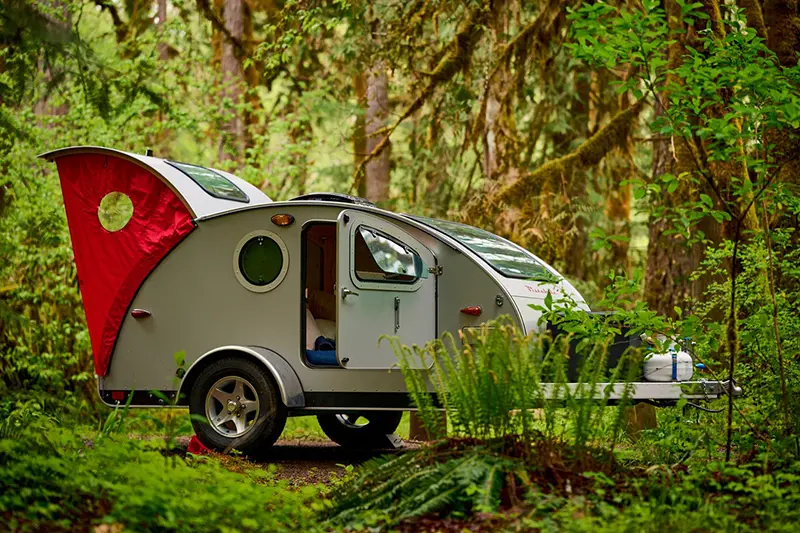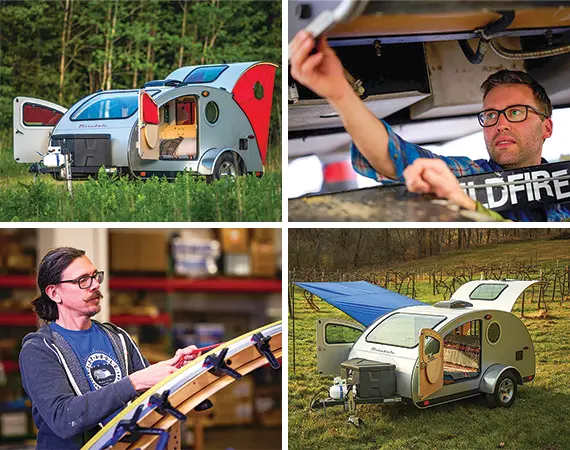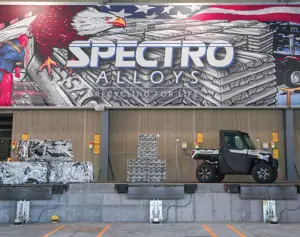There was a time when Vistabule had little need for marketing.
Business was booming for the company that manufactures deluxe teardrop trailers for quick and comfortable jaunts into the wilderness. Customers had to wait up to a year to get a trailer. They’d begun planning a move to a bigger facility, thinking the growth they’d experienced would certainly continue.
Now, they’re glad they didn’t
“We almost pulled the trigger on that,” says company owner Bert Taylor. “A number of things came together to make us think that maybe it wasn’t a good time to do it.”
The most important factor, Taylor says, was the one that matters most: sales.
When COVID sent the world into virtual hibernation, many turned their thoughts to what they could do to safely escape isolation. To folks predisposed to loving the great outdoors, those thoughts turned to internet searches. Some of those searches landed at Vistabule.
Sales soared
“And then,” Taylor says, “we hit kind of a lull. We’d always been able to depend on organic sales.”
Why? Taylor’s theory is that COVID scared people into making big purchases. Many were afraid they’d become one of the millions of people around the globe who died from the deadly virus. When COVID receded, so did their desperate lust for adventure, and then came the lull.
In response, the leadership team at Vistabule got together to address slumping sales. They came up with two answers: a smarter marketing plan, and a new product. One has already paid off, the other they believe will become the key to future growth.

Enterprise Minnesota Business Growth Consultant Amy Hubler crafted a marketing plan for Vistabule built on the company’s strengths, but with an infusion of contemporary messaging. Hubler helped Vistabule with mapping out digital marketing and organizing the nurturing they do with customers in Vistabule’s Ambassador program (which allows trailer owners to show off their trailer to potential customers). Hubler also helped Vistabule with promotions, getting the company to focus on local RV shows, establishing newsletter and email campaigns, and honing the conversations they have with potential customers at the Vistabule rally.
Hubler’s work was aided by a willing team at Vistabule that was ready to put a plan into action.
“The marketing/customer experience team rallied together to develop a plan with Amy,” says Lily Taylor, Vistabule’s chief administrative officer. “And then we executed the plan fully.”
Vistabule’s website has always displayed gorgeous photos of people in the wild with their teardrop campers — cooking on the built-in stove, gazing at the stars through the Vistabule’s moonroof, campfire and canine companions huddled around.
But what they didn’t have was video. Hubler helped them add customer testimonials to the website, with actual buyers explaining why they chose Vistabule and how their lives have changed because of it.
They also got much more aggressive and strategic with social media. They started posting reel videos to Facebook and TikTok with fun stories from customers such as Ben and Leslie.
“I describe it as a blanket fort, like when you were a kid. Everything you need is right there,” says Ben as Leslie covers her face and laughs. “Sorry, that’s my description of it and I love it.”
Personal stories like this help potential customers relate to the product, which isn’t a new marketing concept. But to Vistabule, it was a new step in getting their name in front of potential customers.
“We have been humbled in the last year, and it’s something that we saw happen across the entire community of camping or outdoor businesses. We’ve all seen a drop in sales,” Lily Taylor says. The new emphasis on digital marketing and social media, she adds, will enable people to “see more of who we are as a business.”

The other change Vistabule is making is adding a new product. The company was created by Bert Taylor, who honed his vision of the perfect teardrop camper by traveling in one cross country. The model he came up with was a compact camping oasis — small in stature, but big on luxury and amenities. Today the base price for a Vistabule is about $24,000 — a figure that rose substantially, Taylor says, as the prices of building materials rose. Add in a handful of options, and the price quickly creeps beyond $30,000. Not the most expensive on the market, but certainly on the top shelf.
Yet as he watched sales droop, Taylor decided to offer a more affordable version. So he got to work designing a model that will be debuting soon called the DayTripper.
“We felt the need to embrace a different part of the market. And that led to me designing a smaller trailer,” he says. The new model looks just like a Vistabule, except two feet shorter and without most of the bells and whistles.
Taylor says he believes the DayTripper has “vast potential.” It’s not for sale yet, but they have several in production and will be hitting the RV show circuit soon with prototypes trying to drum up interest.
“We’re looking forward to developing a marketing program for it. The idea is to get a younger crowd, a more spontaneous crowd, people who may already have a lot of camping equipment and gear but they’re sick of sleeping on the ground. I’m looking forward to taking this trailer on the road and visiting some of these activity groups like, say, Rock Climbers of America, or the beaches of California to see how surfers would use a trailer like this.”
Taylor believes the DayTripper will ultimately be a substantial portion of Vistabule’s sales.
“I don’t see how it would not be. It seems like a no-brainer that if you could get the essence of the Vistabule for half the price, you would. I think it will be a very popular item. We’ll find out.”
Return to the Spring 2024 issue of Enterprise Minnesota® magazine.


